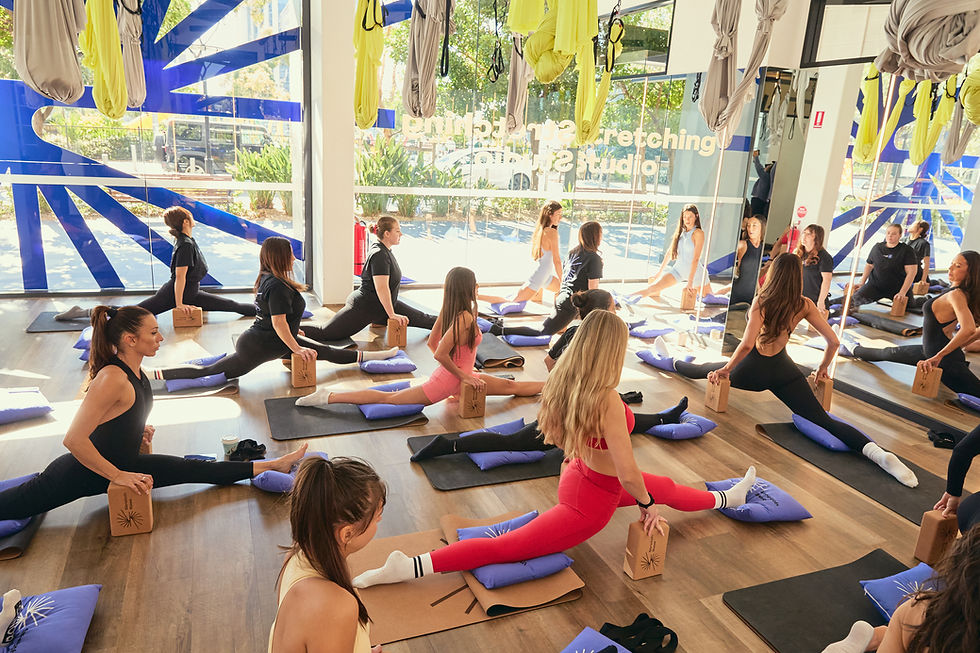How to Keep Your Muscles Flexible and Healthy
- Senia C

- Aug 15, 2025
- 3 min read
Muscle stiffness can be a frustrating and limiting condition. It affects your ability to move freely and perform daily activities comfortably. Keeping your muscles flexible and healthy is essential to prevent stiffness and maintain overall well-being. This article will guide you through practical steps and effective strategies to keep your muscles in top shape.
Understanding Muscle Stiffness and Its Causes
Muscle stiffness occurs when muscles feel tight, sore, or difficult to move. It can result from various factors such as overuse, injury, lack of movement, or even stress. When muscles are stiff, they lose their elasticity and range of motion, which can lead to discomfort and reduced physical performance.
Common causes of muscle stiffness include:
Prolonged inactivity: Sitting or lying down for long periods can cause muscles to tighten.
Overexertion: Intense physical activity without proper warm-up or cool-down.
Dehydration: Lack of fluids affects muscle function.
Poor posture: Slouching or improper alignment strains muscles.
Aging: Natural loss of muscle elasticity over time.
Understanding these causes helps you take proactive steps to maintain muscle health.

The Impact of Muscle Stiffness on Daily Life
Muscle stiffness can significantly affect your quality of life. It can limit your mobility, reduce your strength, and increase the risk of injury. Stiff muscles may cause pain and discomfort, making it difficult to perform simple tasks like bending, walking, or lifting objects.
Moreover, muscle stiffness can lead to poor posture and imbalance, which further exacerbates the problem. It can also affect your sleep quality and overall mood, as discomfort often leads to restlessness.
To avoid these issues, it is crucial to maintain muscle flexibility and health through regular care and attention.

How to Get Rid of Muscle Stiffness?
Getting rid of muscle stiffness involves a combination of lifestyle changes, exercises, and self-care techniques. Here are some effective methods:
1. Regular Stretching
Stretching helps lengthen muscles and improve flexibility. Incorporate dynamic stretches before exercise and static stretches after workouts. Focus on major muscle groups like hamstrings, quadriceps, calves, and back.
Join Stretch Base and be guided with your every move.
2. Stay Hydrated
Drink plenty of water throughout the day to keep muscles hydrated and functioning properly.
3. Warm-Up and Cool-Down
Always warm up before physical activity to prepare muscles and cool down afterward to relax them.
4. Massage and Foam Rolling
Massage therapy and foam rolling can relieve muscle tension and improve blood flow.
5. Maintain Good Posture
Be mindful of your posture during daily activities to reduce unnecessary muscle strain.
6. Use Heat Therapy
Applying heat can relax tight muscles and reduce stiffness.
7. Engage in Low-Impact Exercise
Activities like swimming, walking, or yoga promote muscle flexibility without excessive strain.
If you want to learn more about how to reduce muscle stiffness, consider joining specialized stretch classes that focus on improving muscle health.

Nutrition Tips for Healthy Muscles
Proper nutrition plays a vital role in muscle health. Eating a balanced diet rich in essential nutrients supports muscle repair and flexibility.
Protein: Necessary for muscle repair and growth. Include lean meats, fish, beans, and nuts.
Omega-3 Fatty Acids: Reduce inflammation and promote muscle recovery. Found in fish, flaxseeds, and walnuts.
Magnesium: Helps muscle relaxation. Sources include leafy greens, nuts, and whole grains.
Vitamin D: Supports muscle function. Get it from sunlight exposure and fortified foods.
Antioxidants: Combat oxidative stress that can damage muscles. Found in fruits and vegetables.
Avoid excessive caffeine and alcohol, as they can dehydrate muscles and worsen stiffness.
Daily Habits to Maintain Muscle Flexibility
Incorporating simple habits into your daily routine can keep your muscles flexible and healthy:
Move regularly: Avoid sitting for long periods. Stand up and stretch every hour.
Practice Stretch Classes: These exercises improve flexibility and muscle strength.
Sleep well: Quality sleep aids muscle recovery.
Wear comfortable shoes: Proper footwear supports muscle alignment.
Manage stress: Stress can cause muscle tension. Use relaxation techniques like deep breathing or meditation.
By making these habits part of your lifestyle, you can prevent muscle stiffness and enjoy better mobility.

Embracing a Flexible and Healthy Muscle Lifestyle
Maintaining muscle flexibility and health is a continuous process that requires attention and care. By understanding muscle stiffness and its causes, adopting effective remedies, and nurturing your body with proper nutrition and habits, you can enjoy a life free from the limitations of stiff muscles.
Remember, small changes can make a big difference. Start with simple stretches, stay hydrated, and listen to your body’s needs. If stiffness persists, seek professional advice to tailor a plan that suits your individual requirements.
Taking these steps will help you stay active, comfortable, and strong for years to come.





Comments